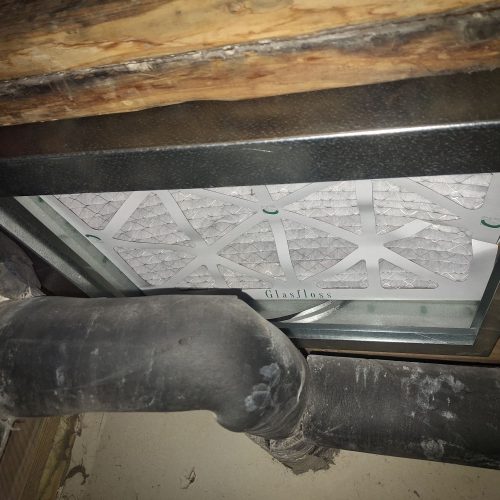
Air filters play a crucial role in maintaining indoor air quality and ensuring the efficient operation of your HVAC (Heating, Ventilation, and Air Conditioning) system. With various types of air filters available, choosing the right one is essential for both the health of your home and the longevity of your HVAC system. In this article, we will explore and compare different types of air filters, helping you make an informed decision for your specific needs.
Fiberglass Filters:
- Material: Composed of layered fiberglass strands.
- Efficiency: Basic filtration, capturing larger particles.
- Cost: Economical, with lower upfront costs.
- Pros: Inexpensive, allows good airflow.
- Cons: Limited in capturing smaller particles and allergens.
Pleated Filters:
- Material: Folded sheets of polyester or cotton.
- Efficiency: Higher filtration efficiency compared to fiberglass.
- Cost: Moderate, falling between fiberglass and high-efficiency filters.
- Pros: Improved particle capture, better for allergens.
- Cons: Slightly higher initial cost than fiberglass.
HEPA Filters:
- Material: High-Efficiency Particulate Air filters made of dense fiberglass or synthetic material.
- Efficiency: Exceptional filtration, capturing particles as small as 0.3 microns.
- Cost: Higher upfront cost compared to standard filters.
- Pros: Superior filtration for allergens and airborne contaminants.
- Cons: May reduce airflow if the HVAC system is not designed for HEPA filters.
Activated Carbon Filters:
- Material: Treated with activated carbon to trap odors and chemical pollutants.
- Efficiency: Effective for trapping gases, odors, and volatile organic compounds (VOCs).
- Cost: Moderate to high, depending on the quality and thickness of the filter.
- Pros: Addresses odor issues, improves indoor air quality.
- Cons: May have a shorter lifespan and require more frequent replacement.
Electrostatic Filters:
- Material: Charged electrostatically to attract and trap particles.
- Efficiency: Varies, with some models offering high-efficiency filtration.
- Cost: Moderate, with some high-efficiency models being more expensive.
- Pros: Effectively captures smaller particles without significantly reducing airflow.
- Cons: Performance may degrade over time, requiring regular cleaning or replacement.
Choosing the Right Air Filter:
Consider Allergies and Health Concerns:
- HEPA filters are ideal for those with allergies or respiratory issues due to their superior filtration capabilities.
Evaluate Air Quality Needs:
- Activated carbon filters are effective in improving indoor air quality by reducing odors and chemical pollutants.
Balancing Efficiency and Airflow:
- Pleated and electrostatic filters strike a balance between filtration efficiency and maintaining proper airflow.
Budget Considerations:
- Fiberglass filters are budget-friendly, while HEPA and activated carbon filters may have higher upfront costs.
System Compatibility:
- Ensure that your HVAC system is compatible with the selected filter type to prevent airflow restrictions.
Conclusion: Selecting the right air filter for your HVAC system involves considering factors such as filtration efficiency, cost, and specific air quality needs. By understanding the characteristics of different filter types, you can make an informed decision that promotes both the health of your home’s occupants and the optimal performance of your HVAC system. Regularly replacing or cleaning filters, as recommended by the manufacturer, is essential to maintain efficiency and ensure clean, healthy air circulation throughout your living space.

